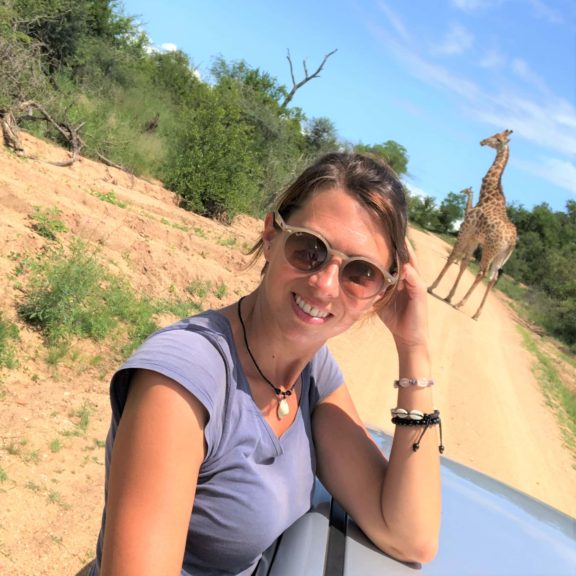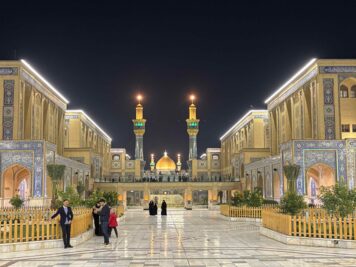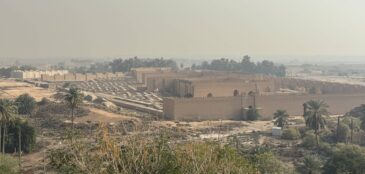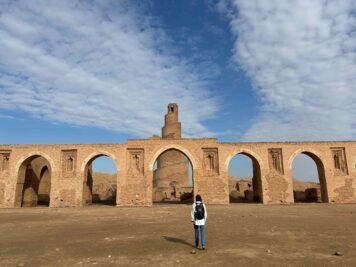‘Ah, les blancs’, said the conductor grinning congenially, and holding back a pushy passenger or five to let me climb onto the bus. We were making our way to Abidjan and we’d been waiting at the station in Yakro for nearly two hours while touts chased passengers and passengers chased goats.
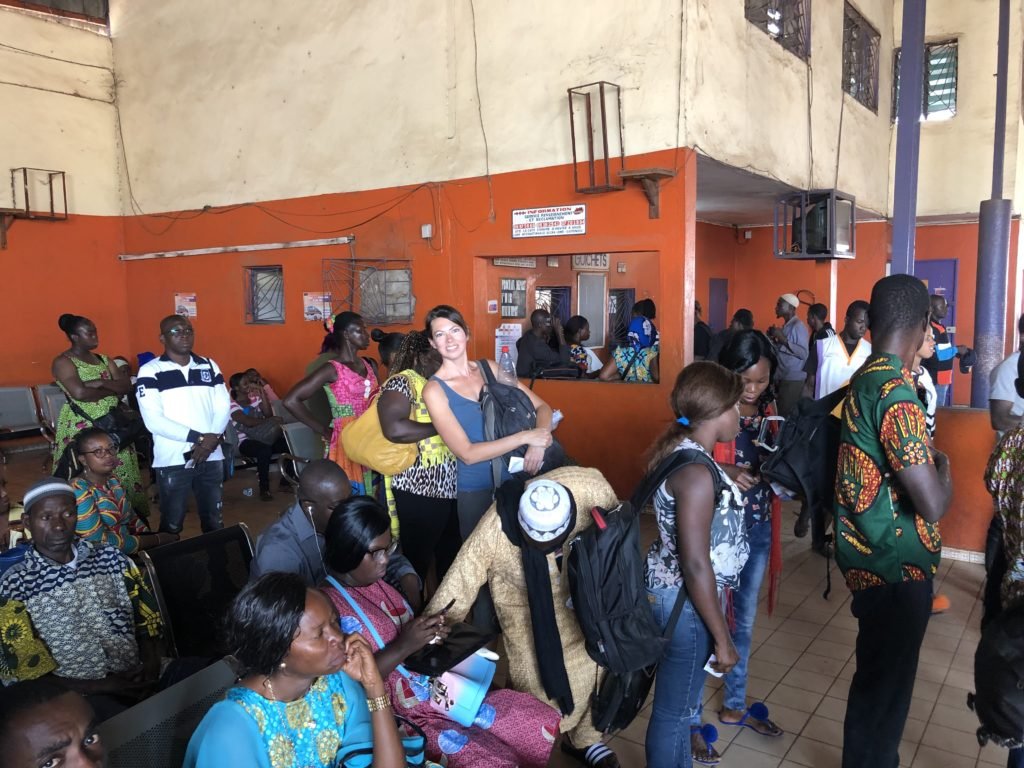
Lots of people were travelling with a goat or sheep in tow. Probably the animal’s first and last trip. This close to Christmas and New Years there’s no way they’re along for the ride as treasured family pets.
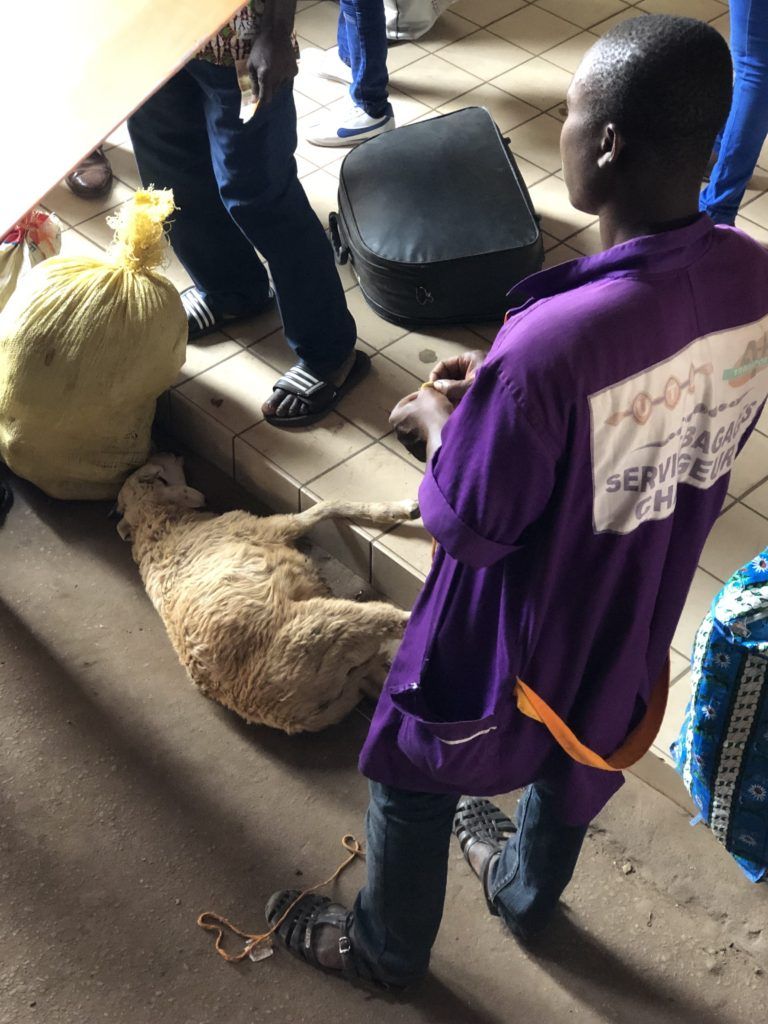
The first time Oyv opened up a luggage compartment and found a goat reluctantly riding inside, he was mildly surprised. Live animals are usually tied to the roof.
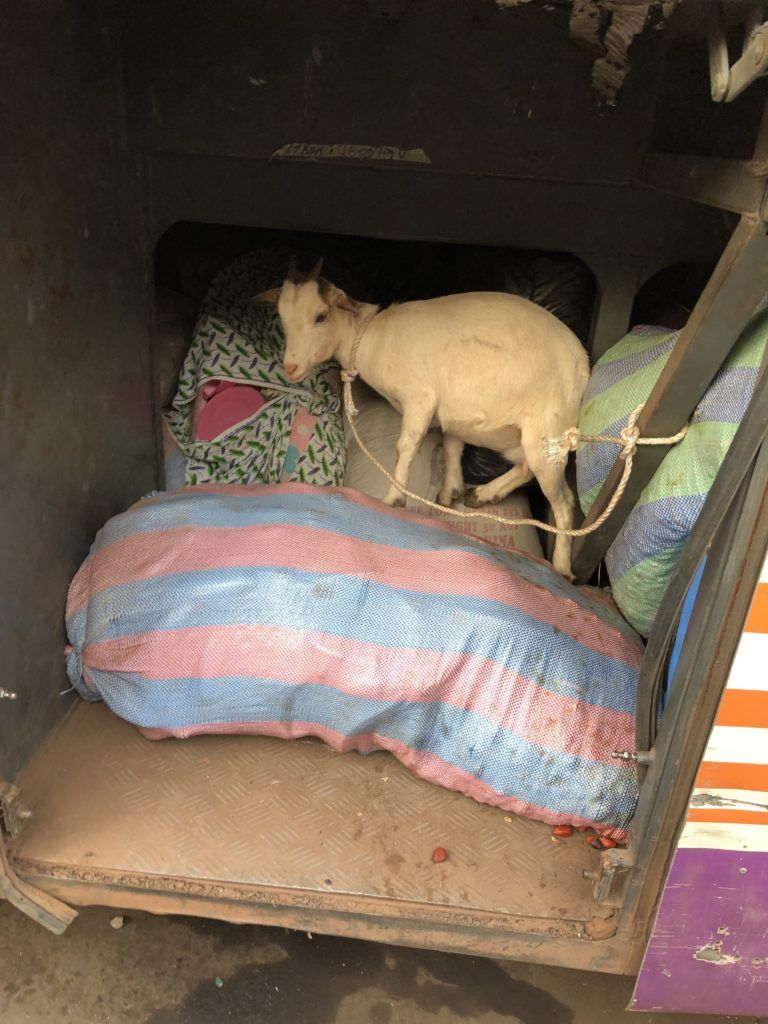
But here the buses are big and the luggage compartments roomy enough to take a whole herd, if someone showed up with one. I took my seat on the bus and watched out the window, waiting for just that.
In Abidjan we rented ourselves a one-bedroom apartment on a dusty side street in a very busy neighbourhood. There was plenty of really good street food available nearby, but we were absurdly excited about shopping in the huge hypermart not too far away.
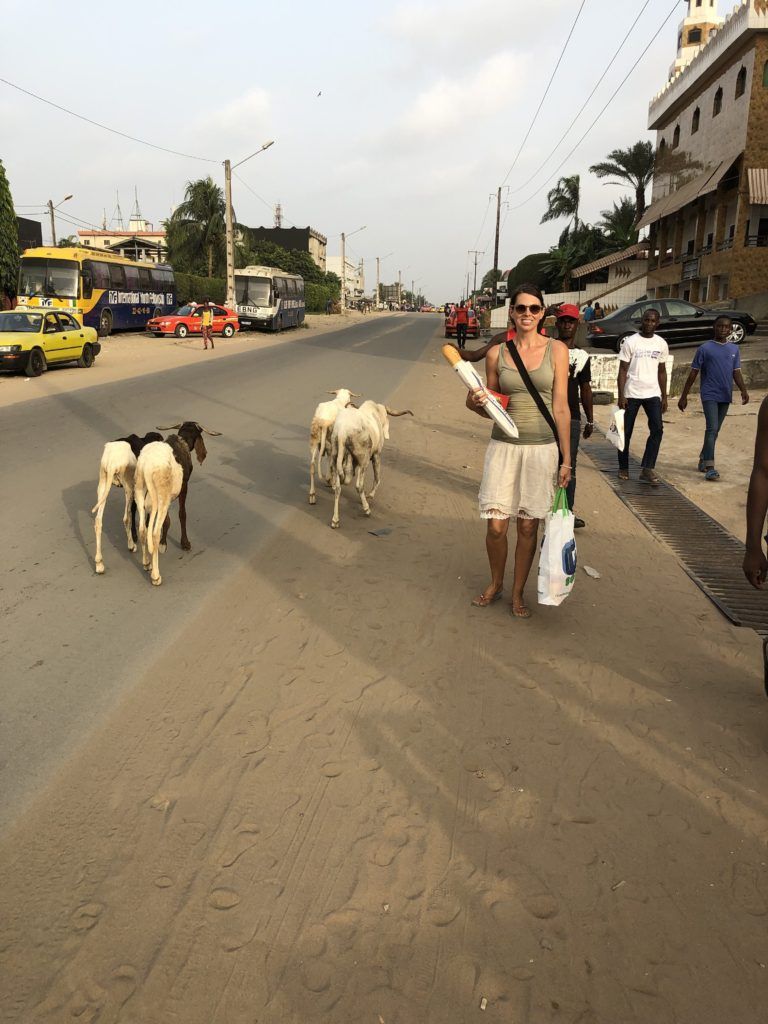
We brought home a few days’ worth of groceries and some wine and basically started pretending to live in Abidjan.
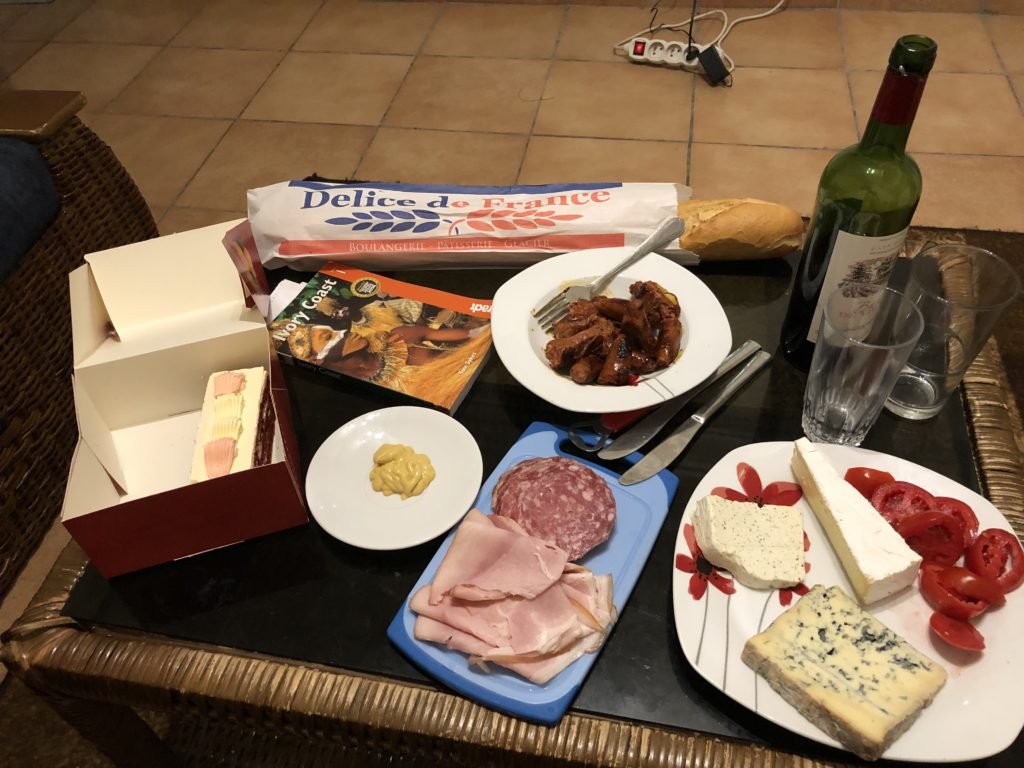
Travelling rough does this to us. An air-conditioned grocery store with a deli counter and a bakery, selling all the best of the local food and on top of that imports from home, sends ripples of excitement through us. It’s not long til we find ourselves pushing a huge trolley around and debating if we can eat 3 kilograms of smoked salmon in the next day or so and if not, can we carry it in our backpacks.
After a continental breakfast one day we went downtown to St. Paul’s Cathedral – another one of former President Felix Houphouet-Boigny’s expensive projects.
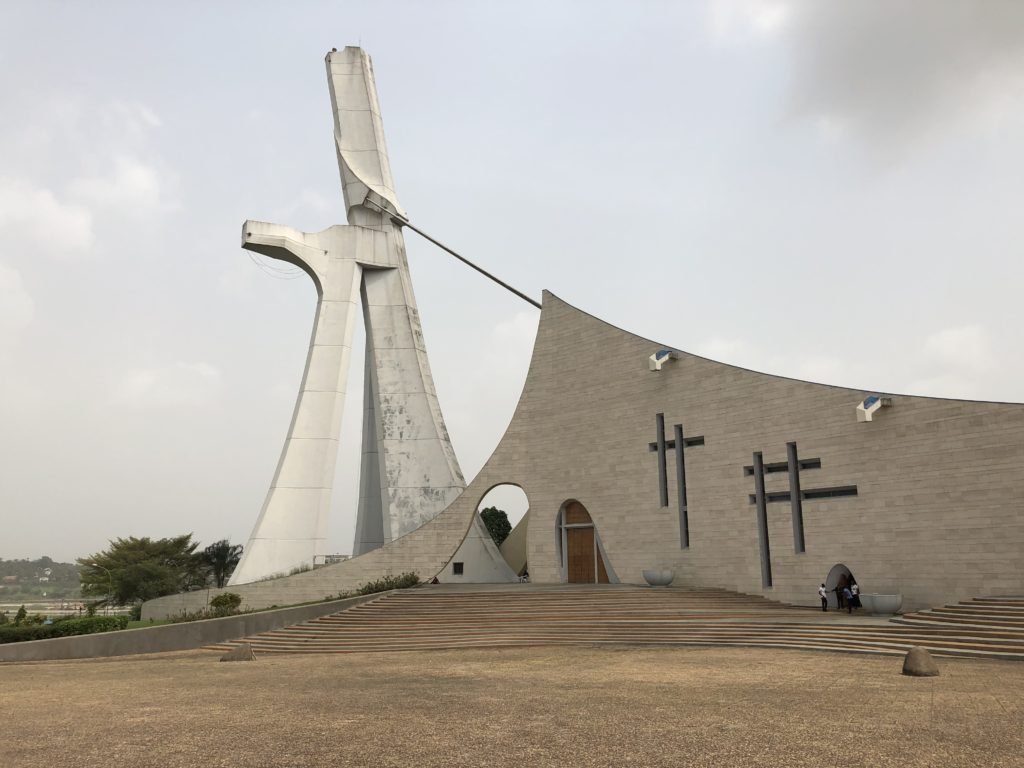
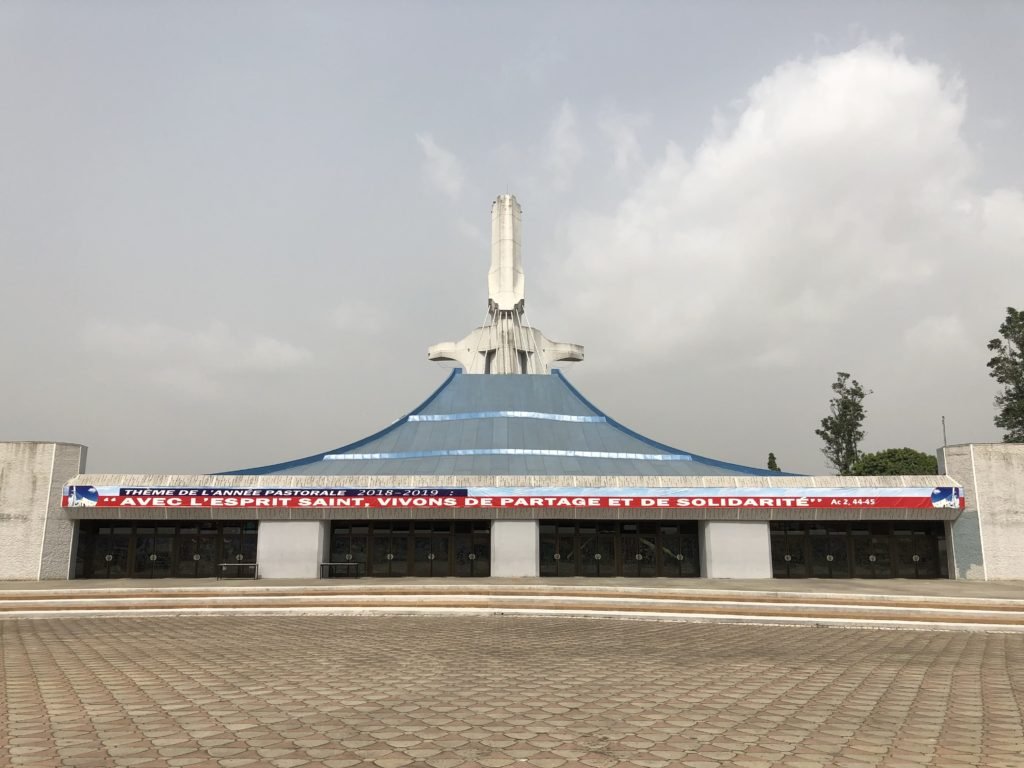
There’s some really interesting stained glass depicting things like the first contact between European missionaries and local people.
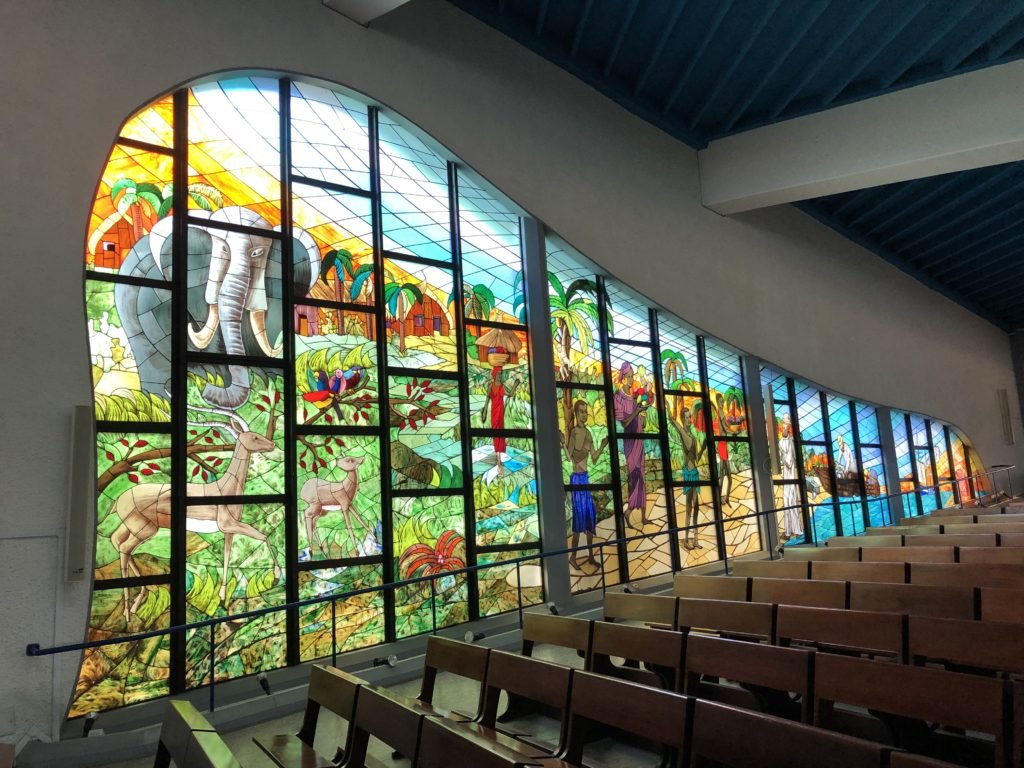
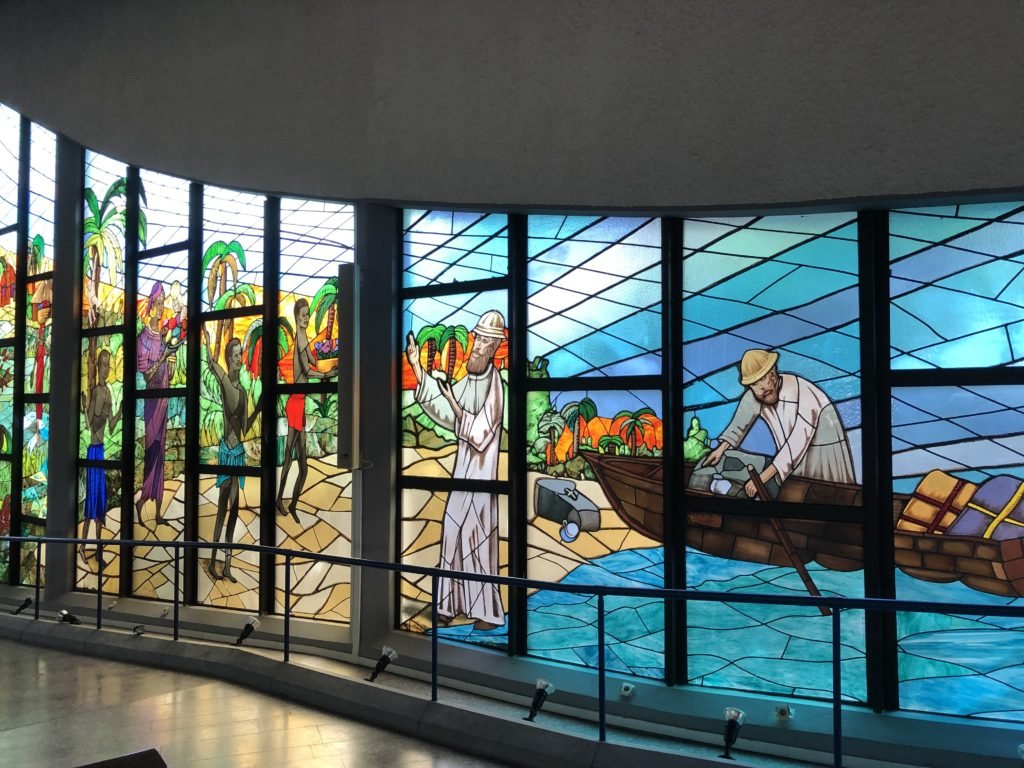
As if we hadn’t seen enough miserable animals on the bus, we visited Abidjan’s Zoo. Around 15 chimps live there and people throw food and rubbish into their enclosure.
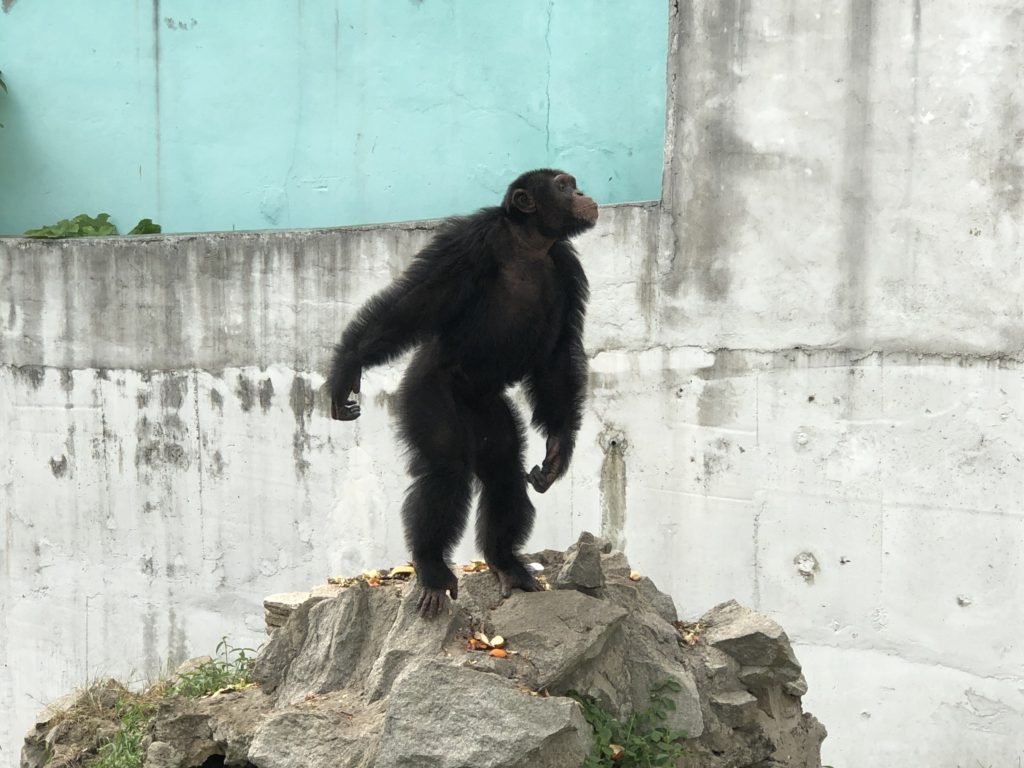
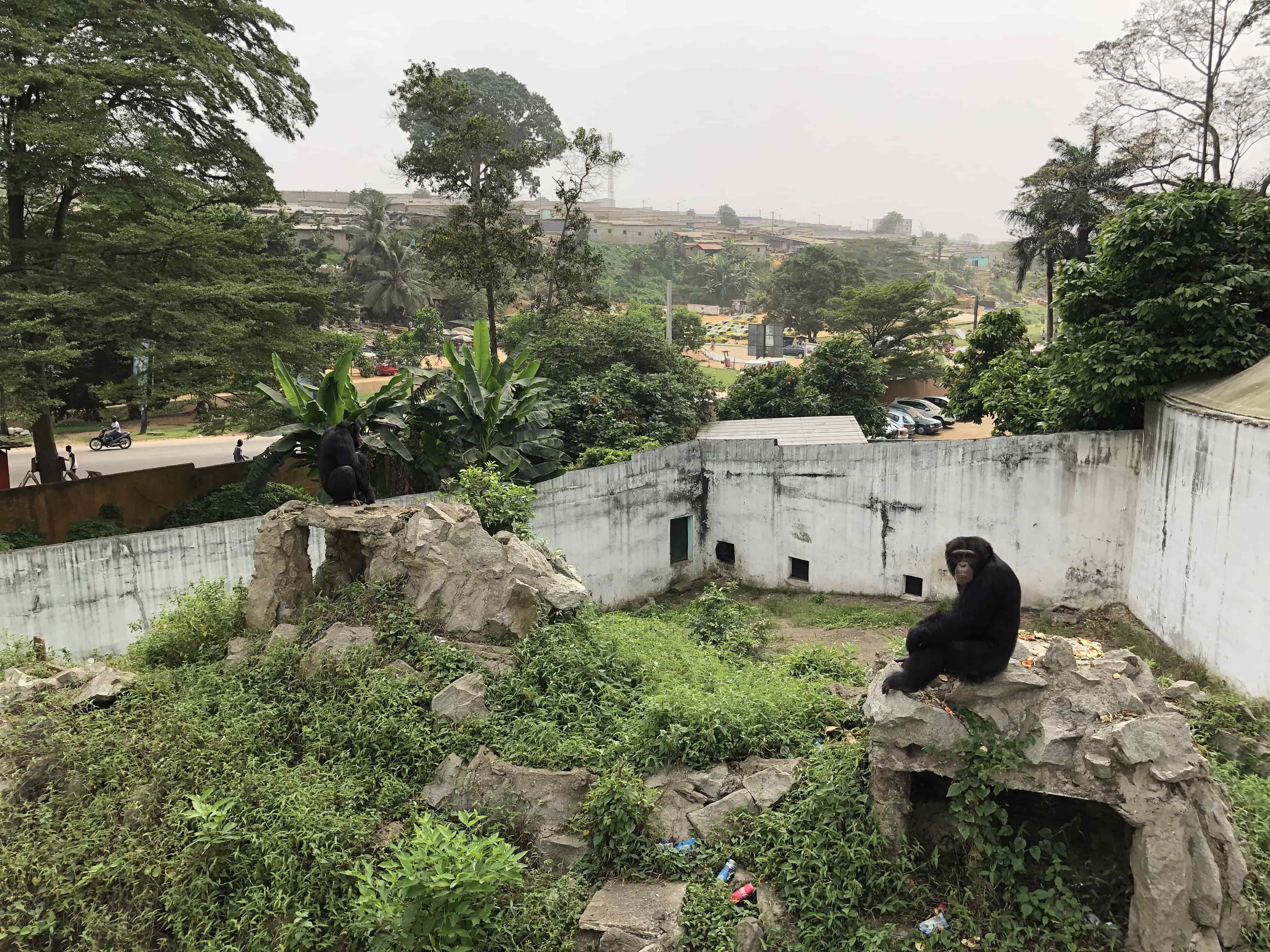
Watching a chimpanzee drink a Fanta while visitors throw him bags of chips and candy is just sad.
It’s also one of the few zoos I’ve been to where monkeys are not so much in the zoo as at it.
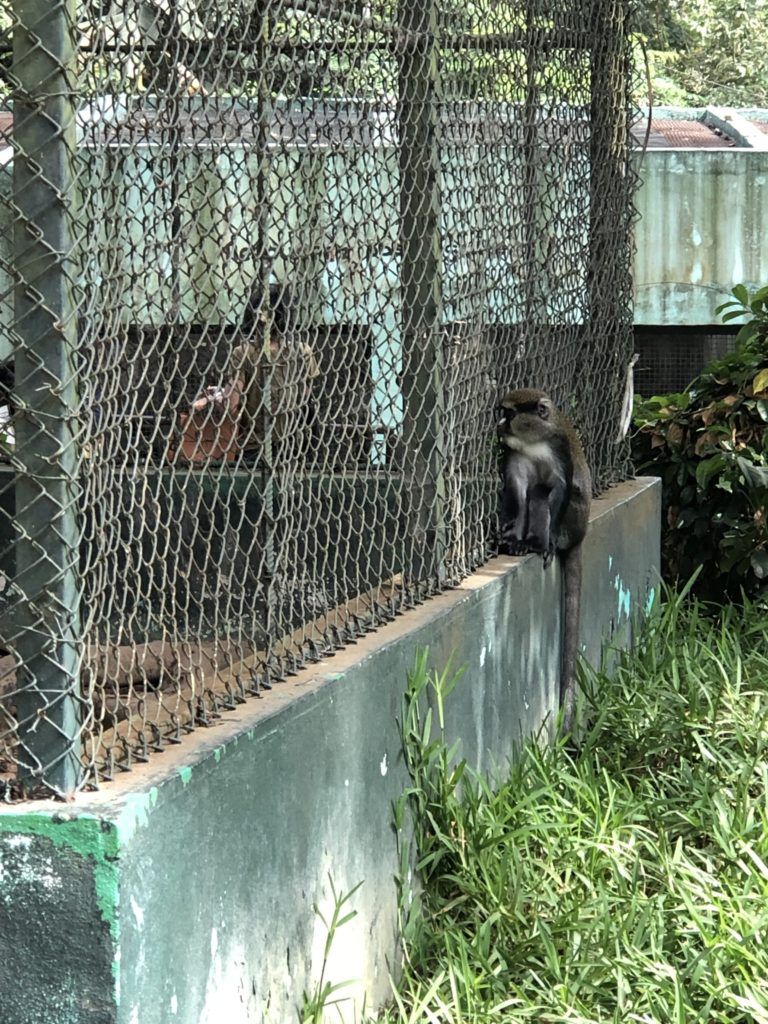
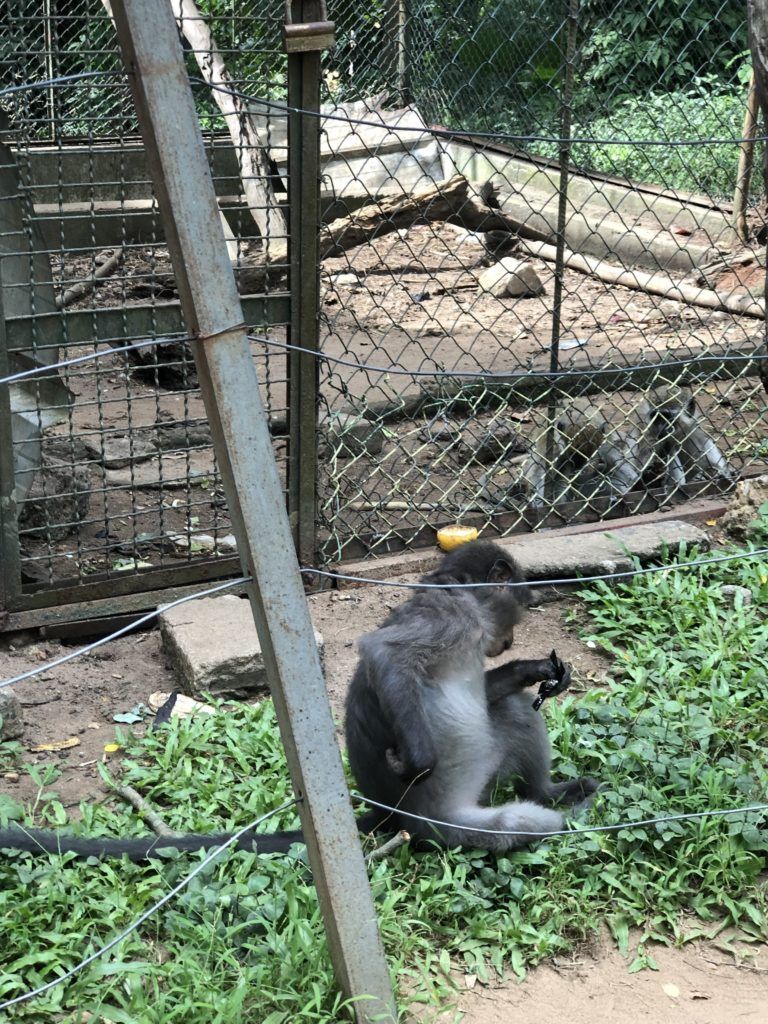
We asked a zookeeper about that: he said they often tend to escape. Then he went back to encouraging kids to stand as close to the resident elephant as possible with leaves on their heads to tempt the elephant into snuffling them up with his trunk.
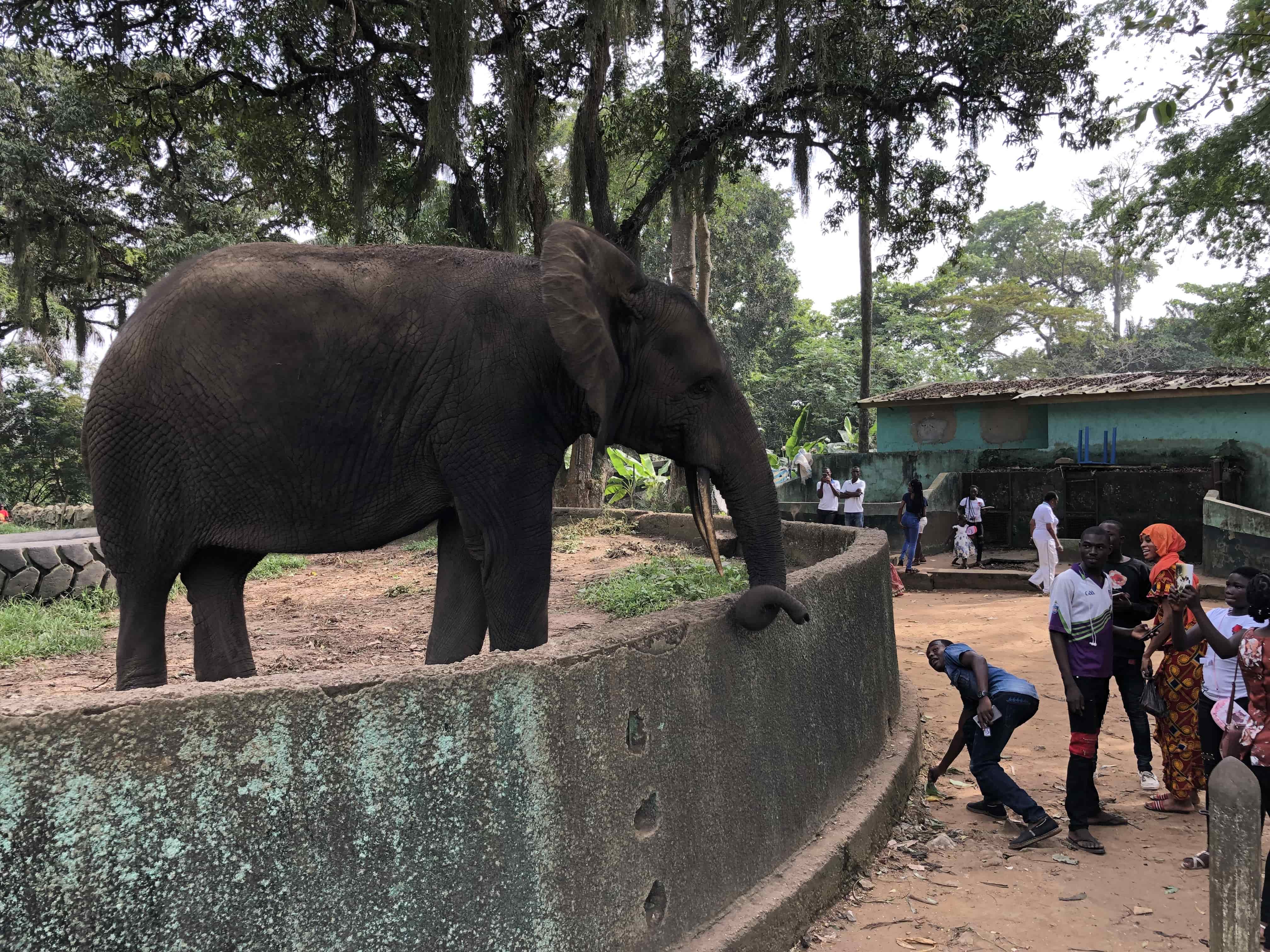
While the zookeeper busied himself arranging the photo-op we saw two teenagers climb into the elephant’s enclosure.
As its name suggests, Ivory Coast has – or rather, had – an abundant elephant population. But thanks to poaching, civil war, logging, and other destructive practices, there are now only a few hundred left in the country.
Once we’d managed to clean out the fridge and eat up all our groceries, we moved on to Grand Bassam. We checked ourselves into a place right on the beach, with a pretty garden and swimming pool.
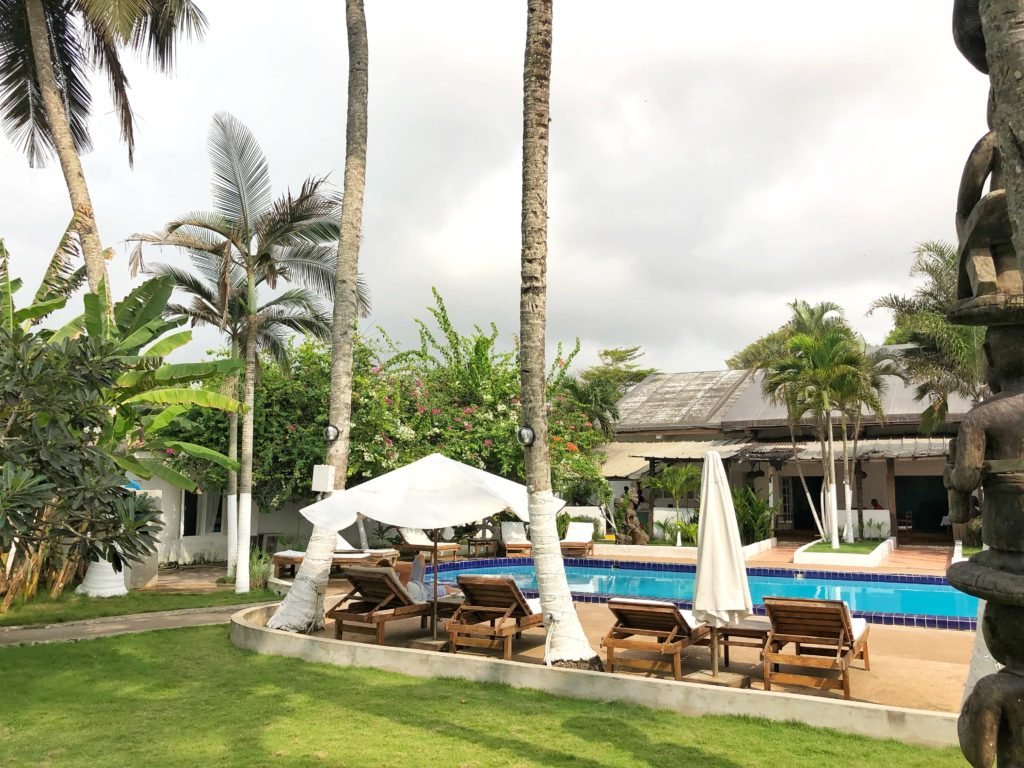
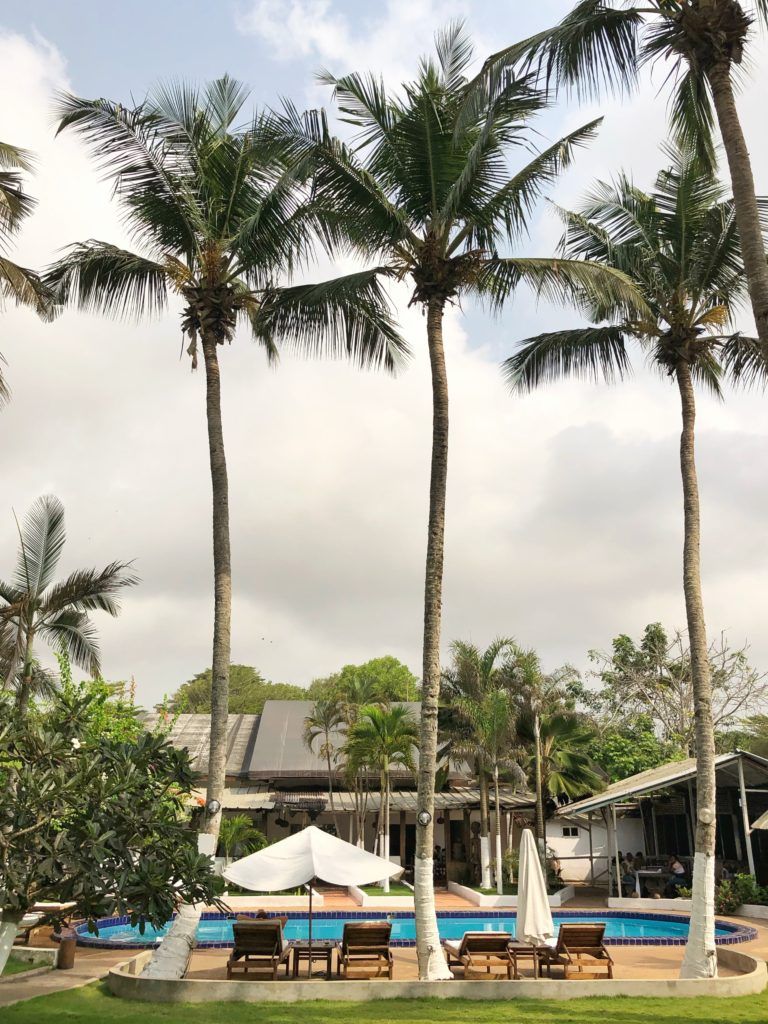
It also, by the way, serves the best breakfast we’ve had all trip.
Chatting to the hotel’s owner we mentioned that we were backpacking – the usual assumption is that we’re NGOers of some sort. ‘You can’t backpack in Cote d’Ivoire’ said the owner reflexively. ‘Oh yes, you can’ we answered. She seemed impressed, but the manager appeared to take us and our dusty backpacks as a personal affront.
The manager patrolled the hallway like the matron at a 19th century mental institution, jangling her basket of keys, on the lookout for any disruptive backpacker behaviour. She caught us bringing in bottled water from a shop down the street and from that point on it was clear we’d lived up to her dismal expectations.
Grand Bassam was the site of a terror attack in 2016. Starting at the hotel Etoile de Sud – right next door to us – gunmen opened fire and stormed the beach and other hotels nearby, including ours. Fifteen innocent people lost their lives in this heinous attack. Sitting poolside or down at the beach I got a strange feeling just thinking about it. I talked to our hotel’s friendly owner and she recounted the events of that day with tears in her eyes. There’s a memorial nearby:
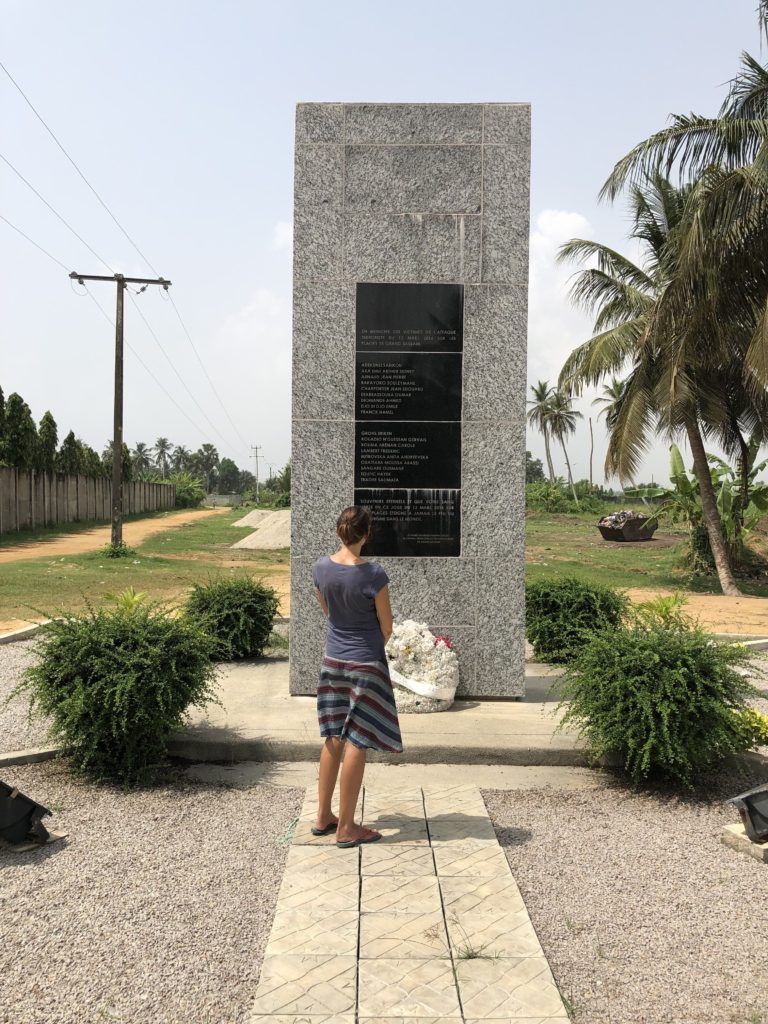
Like other countries in this unstable region, Cote d’Ivoire is considered at risk for more terror. Between that and the possibility of clashes between local militias, many foreign governments advise against ‘non-essential’ travel in parts of the country, particularly along the border with Liberia which we’d just crossed recently. These sorts of things are always in the back of my mind as we travel, and it’s definitely important to keep an eye current events as we move from place to place.
There is a very noticeable military presence here in town. We assumed it was in response to the terror attack and the possible threat of more to come. But asking around we learned that a new mayor has recently been elected and yet to be installed. He’s from a different ethnic group and there is already political tension between his group and the predominant one in the area. We couldn’t decide if soldiers patrolling the streets felt reassuring. The expat running the restaurant we ate at every day didn’t think so. He casually showed us a teargas canister one day at dinner and mentioned that he thought things seemed ‘ok at the moment’.
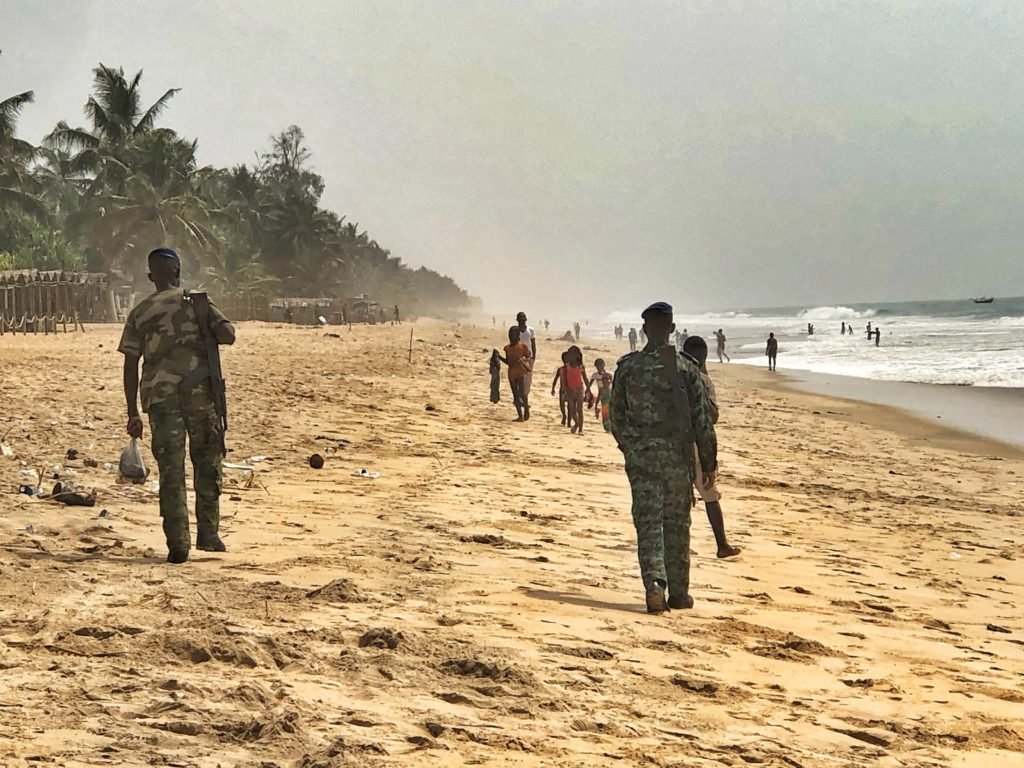
But despite it all, life goes on. The New Year is a big deal and on the first day of 2019 we were down on the beach with everyone else. There’s horse riding (no thanks, I had enough of that in Kyrgyzstan last summer) – and food and drinks and music.
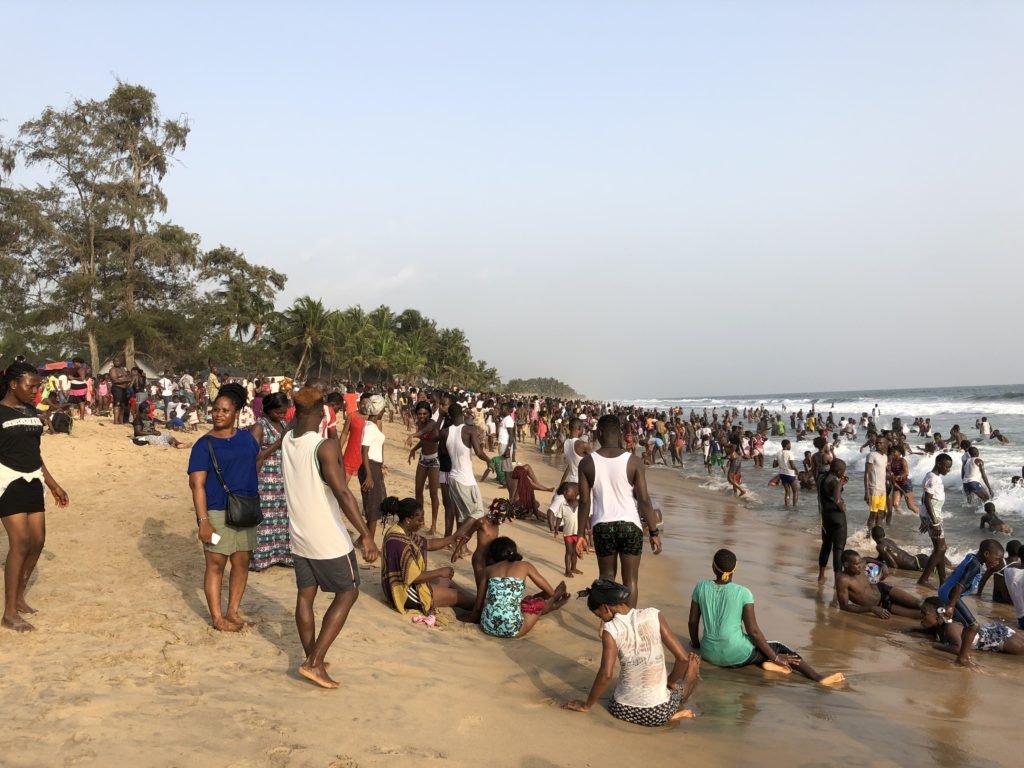
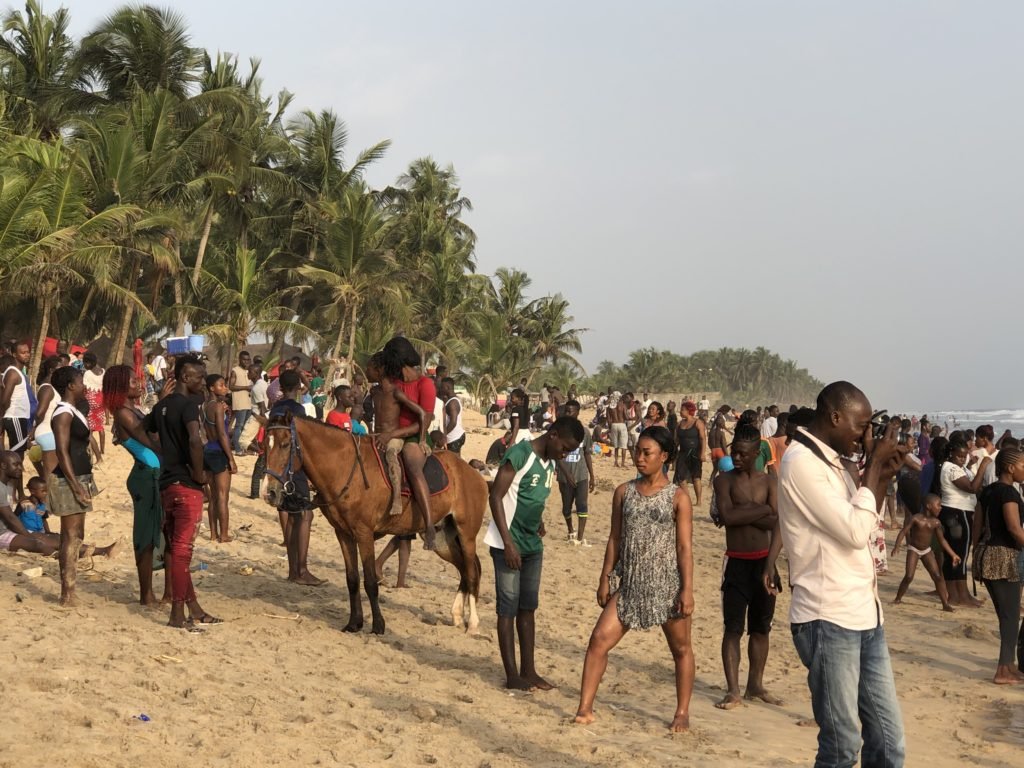
There’s not a lot of swimming though: despite life on the coast, only around one in five people here can actually swim. Not to mention, there’s a powerful undertow in which hundreds of people drown every year.
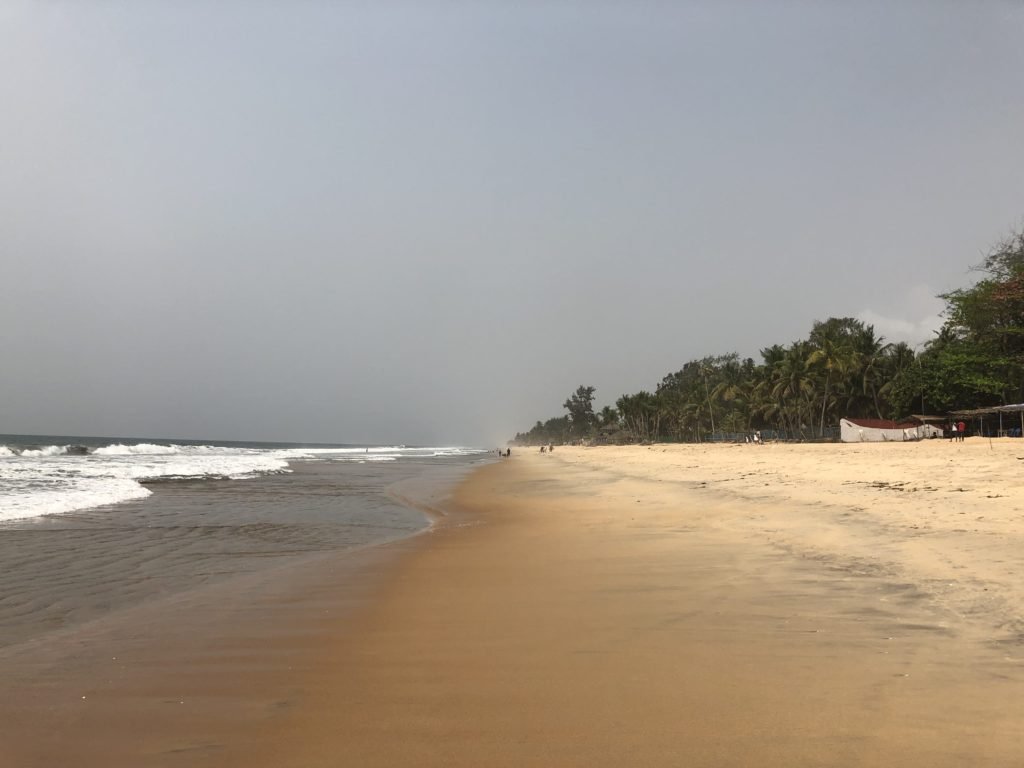
When we weren’t lounging poolside and trying not to contemplate recent history too much, we explored the town’s Quartier Colonial. Grand Bassam was established as the capital of a French protectorate in the 1840s. But between fighting resistance to colonial rule and illness, the white settlers were nearly wiped out in the 1850s.
After another outbreak of yellow fever killed three quarters of the population in 1899, authorities tried burning down parts of the town in an effort to rid it of disease. France shifted the colonial capital to a different town and Grand Bassam lost out to Abidjan as the country’s major port.
Nevertheless, from the 1880s right up until the 1930s various colonial governors expanded the town, and the old world buildings still stand today – just barely – crumbling in the tropical heat.
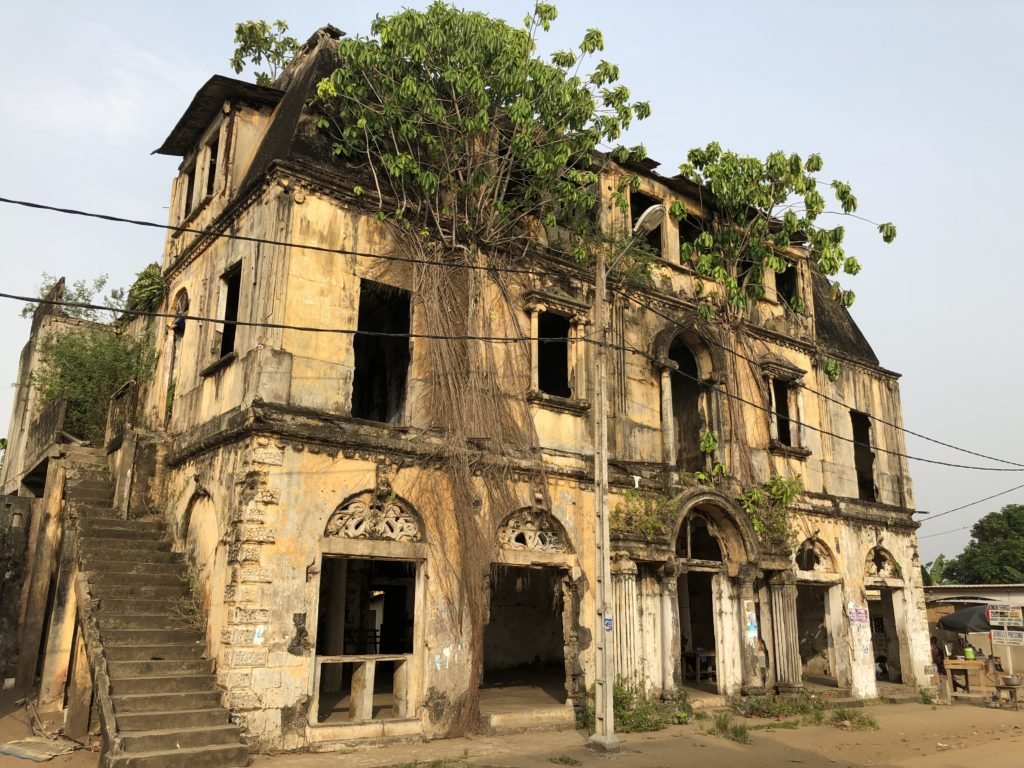
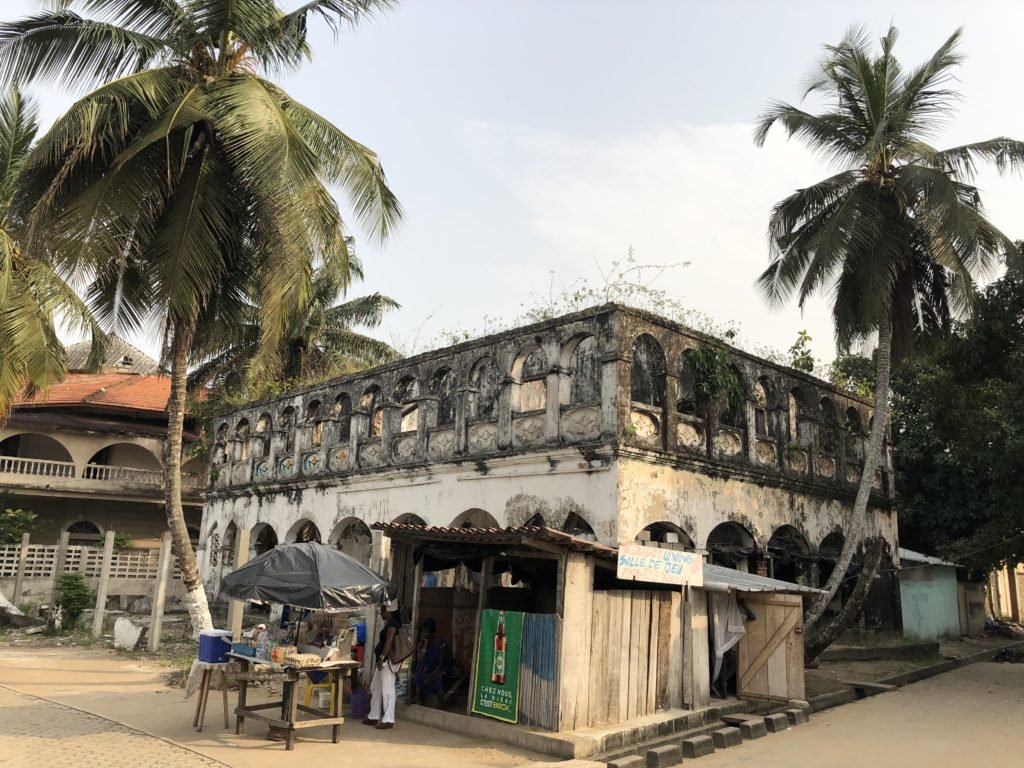
There’s a post office, the Governor’s mansion, the first bank, and a once-grand hotel, among others.
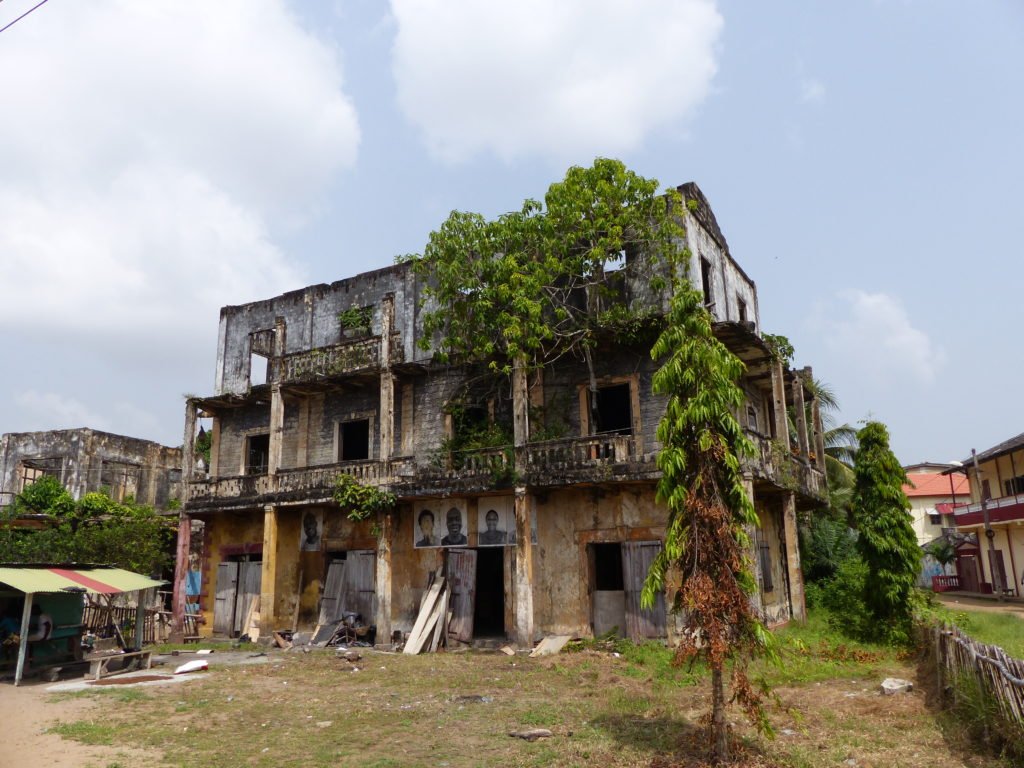
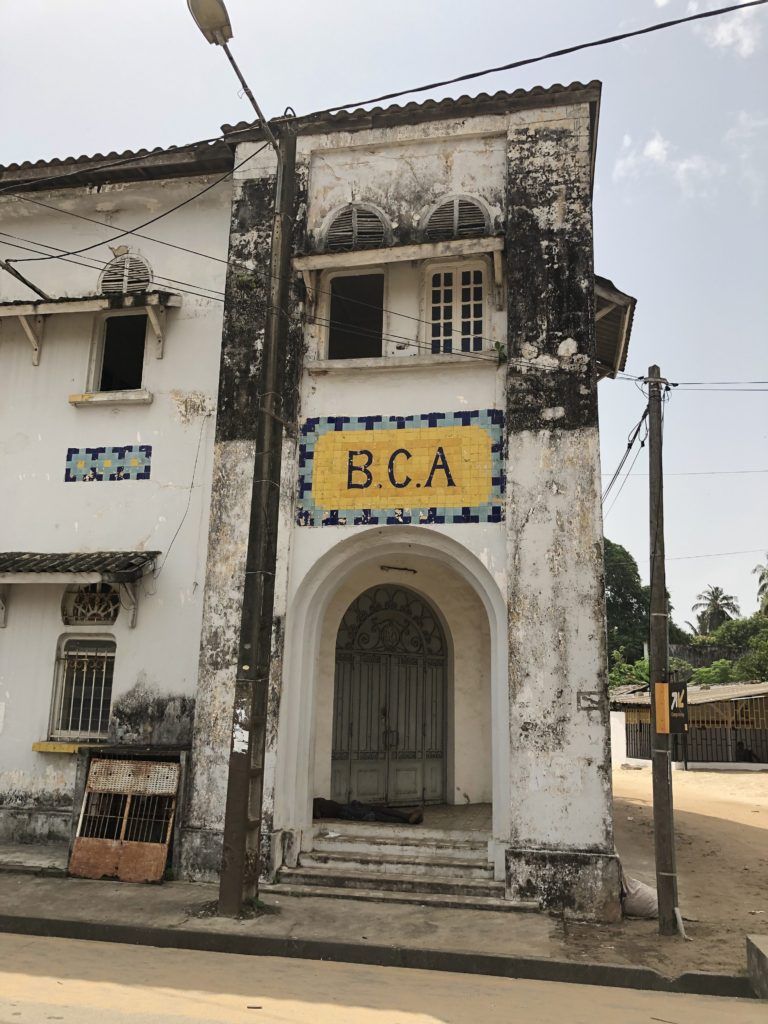
And on a more modern note, there is a really great restaurant serving fantastic pizza.
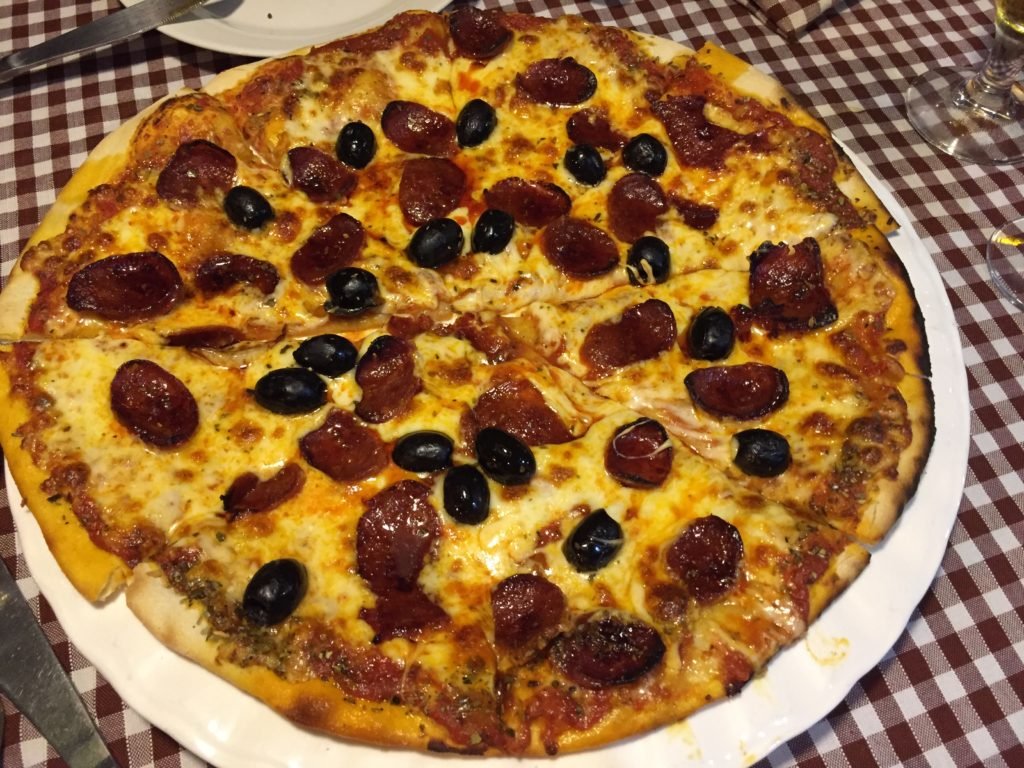
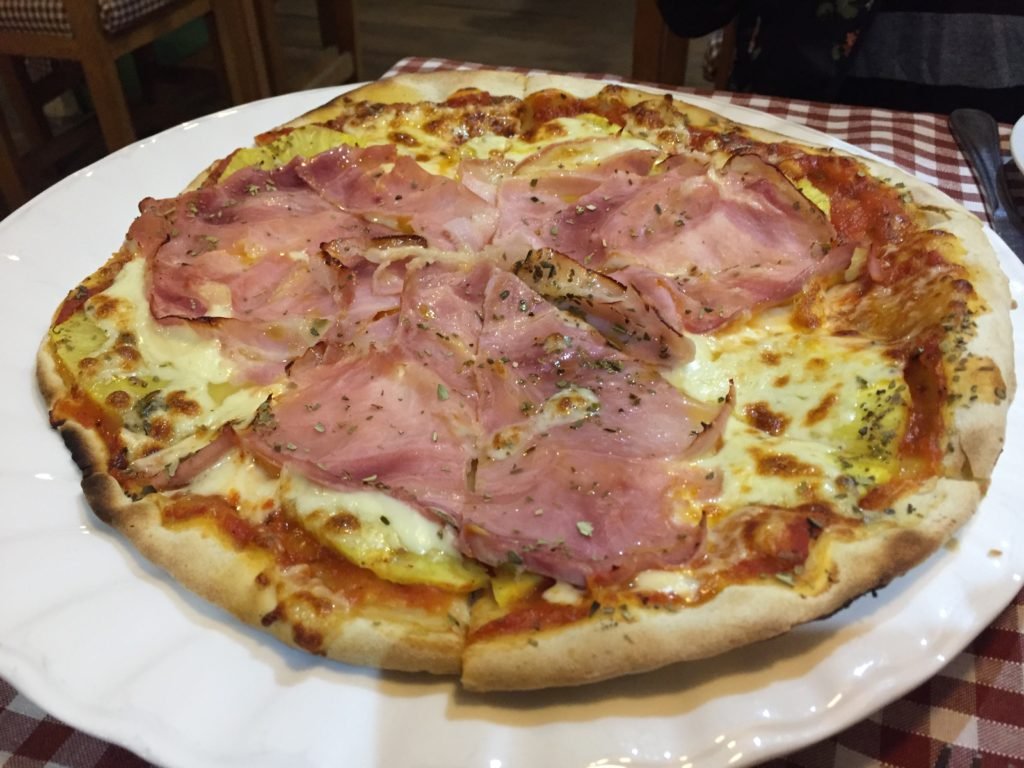
We ate there every day under the watchful eyes of half the Ivorian military. You get used to it. For us, it’s probably only a matter of time before we’re boarding a bus with a couple of goats in tow.
Read More
For more of our adventures (and misadventures) in Ivory Coast, check out the rest of my stories from the road.
